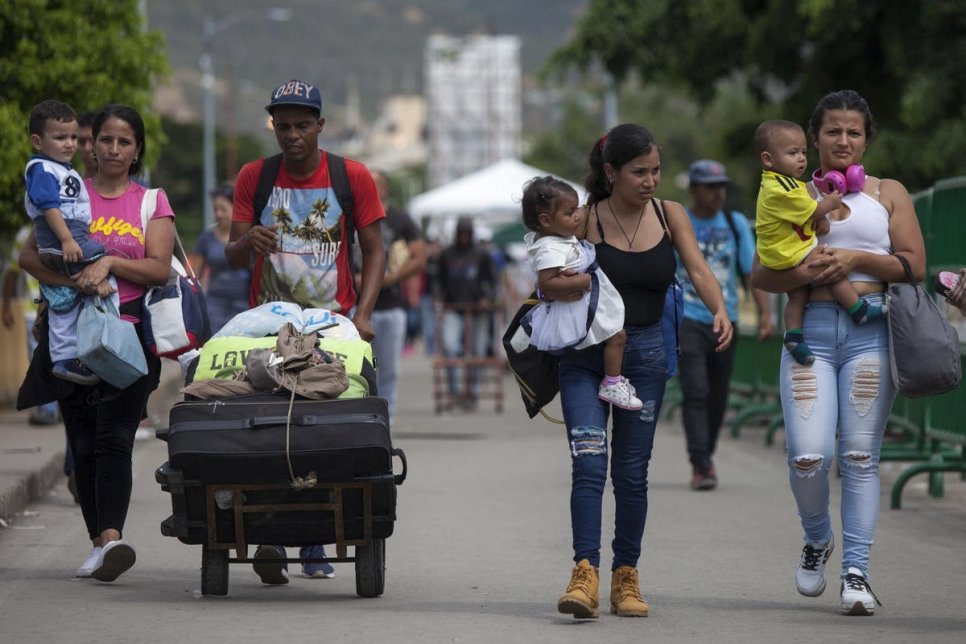
Spanish – The global crisis triggered by the novel coronavirus has not only paralyzed economies but has also severely hit the pockets of workers, especially migrants who are now stranded.
Thousands of Venezuelans have been forced to return to their country because the implementation of quarantines in different nations has left them without their daily income. Many of them rely on their daily wages to survive.
El éxodo venezolano en reversa
Migrantes venezolanos aseguran que ya no son bien recibidos en #Colombia y quieren volver a su país. Allí les esperan las garantías del estado, pero también un sistema de salud amenazado por el coronavirus.#DWNoticias /jam pic.twitter.com/I2Obte5XgR
— DW Español (@dw_espanol) April 4, 2020
Companies that are paralyzed are beginning to lay off hundreds of workers; others have decided not to pay salaries. Meanwhile, those working in the informal sector have found themselves unemployed and unable to earn an income.
The COVID-19 pandemic has put vulnerable Venezuelans in a critical situation: with no income, no savings, and unable to pay rent or services, they are forced to return. In countries such as Peru and Colombia, many Venezuelans have been left destitute because they cannot pay rent for their homes. Health measures require that they cannot go out to work. Many do not receive medical care or social assistance.
Peru, for example, has decided to manage humanitarian support along with the United Nations High Commissioner for Refugees (UNHCR) and the European Union (EU) in light of the concern about the vulnerable condition of Venezuelans.
“We are aware that the Venezuelan migrant population is one of the most vulnerable. I thank @ONUPeru, UNHCR, IOM, EU, and Save the Children for the creation of a fund to assist Venezuelan citizens in need and those who require additional support,” said Peru’s Minister of Foreign Affairs, Gustavo Meza Cuadra.
But despite the support of international organizations, aid is not enough for the more than five million migrants in the world, most of whom do not have job stability. “I was fired as soon as the health emergency began here in Chile. The company I worked for began to fire dozens of us. Today, it was my turn. I was left unemployed, but thank God I had managed to save some money with which I hope to endure through this nightmare,” David Cárdenas told the PanAm Post.
“I work for a hotel chain in Lima. Although they are not directly firing workers, the company has decided not to pay salaries. They said that once the crisis is over, we can return to our jobs. Meanwhile, we will not receive any money,” Daniel Cordova told the PanAm Post.
According to a poll by Equilibrium Cende, 33% of Venezuelan migrants in Peru became unemployed during the quarantine. Likewise, 37% of Venezuelans surveyed said that they don’t have supplies in their homes. They must go out daily to buy supplies, but they don’t have money to do so.
An article in El Clarín revealed that “some 600 Venezuelans crossed the Simon Bolivar International Bridge this weekend, making them the first group of immigrants to return to the country after losing their jobs due to the coronavirus pandemic.” And even though conditions in Venezuela have not improved, migrants have found it impossible to pay their rent, and for now, what they need most is a roof over their heads. “I have a house in Venezuela. No one will take it away from me there. But here, yes,” said a Venezuelan woman to the newspaper La República.
 Versión Español
Versión Español












